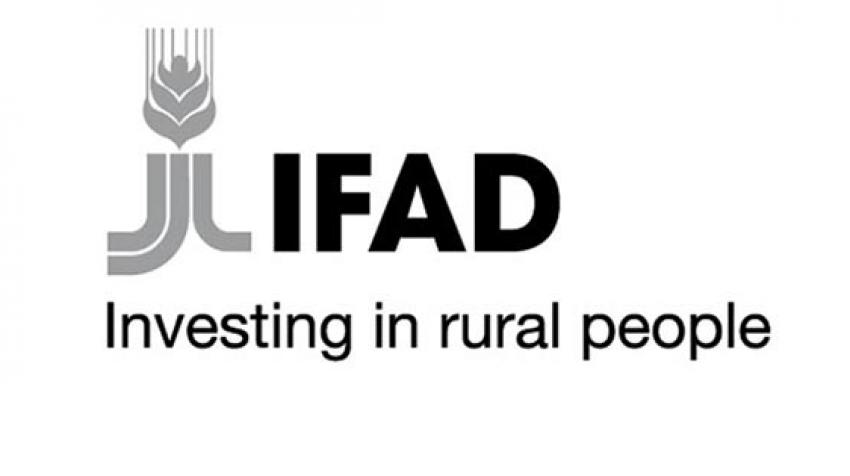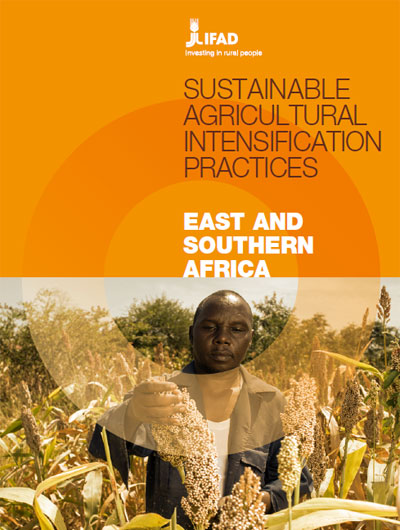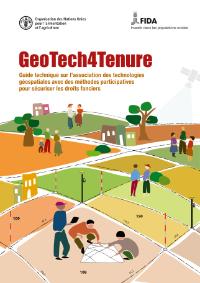Focal point
Location
The International Fund for Agricultural Development (IFAD), a specialized agency of the United Nations, was established as an international financial institution in 1977 as one of the major outcomes of the 1974 World Food Conference. The Conference was organized in response to the food crises of the early 1970s that primarily affected the Sahelian countries of Africa. The conference resolved that "an International Fund for Agricultural Development should be established immediately to finance agricultural development projects primarily for food production in the developing countries". One of the most important insights emerging from the conference was that the causes of food insecurity and famine were not so much failures in food production, but structural problems relating to poverty and to the fact that the majority of the developing world's poor populations were concentrated in rural areas.
IFAD's mission is to enable poor rural people to overcome poverty.
IFAD is dedicated to eradicating rural poverty in developing countries. Seventy-five per cent of the world's poorest people - 1.4 billion women, children and men - live in rural areas and depend on agriculture and related activities for their livelihoods.
Working with rural poor people, governments, donors, non-governmental organizations and many other partners, IFAD focuses on country-specific solutions, which can involve increasing rural poor peoples' access to financial services, markets, technology, land and other natural resources.
Resources
Displaying 6 - 10 of 102L'État de la sécurité alimentaire et de la nutrition dans le monde 2023
L’urbanisation progresse dans de nombreux pays et ce rapport montre qu’elle modifie les systèmes agroalimentaires d’une façon qu’il n’est plus possible d’appréhender sous l’angle de la simple dichotomie entre milieu rural et milieu urbain.
Pratiques d’intensification agricole durable – Afrique orientale et australe
L’intensification agricole durable désigne des pratiques visant à produire davantage à partir de terres, de ressources en eau ou d’autres ressources naturelles données, tout en protégeant l’environnement et en accroissant les retombées économiques et sociales positives.
Les auteurs de la présente note recensent les pratiques d’intensification agricole durable de 17 pays d’Afrique orientale et australe, et formulent des recommandations sur les meilleures méthodes pour les promouvoir dans les pays concernés.
Guide technique sur l’association des technologies géospatiales avec des méthodes participatives pour sécuriser les droits fonciers
Conformément aux Directives volontaires pour une gouvernance responsable des régimes fonciers, les investissements publics et privés dans le monde reconnaissent de plus en plus la gouvernance foncière responsable comme un déterminant du succès et de la durabilité de leurs réalisations. Les gestionnaires d'investissement comprennent que la prévention et l'atténuation des problèmes liés à la tenure sont une étape nécessaire pour atteindre leurs objectifs.
Comment intégrer le Système de formation action pour l’égalité femmes hommes (GALS) dans les opérations du FIDA
La présente note a pour but d’indiquer comment intégrer le Système de formation action pour l’égalité femmes-hommes (GALS, anciennement appelé « système d’apprentissage interactif entre les sexes ») pour faire évoluer les rapports entre les femmes et les hommes dans les opérations du Fonds international de développement agricole (FIDA).
Systèmes de collecte d’eau pour les petits producteurs, conseils en matière de choix et de conception
La collecte de l'eau de pluie augmente la quantité d'eau disponible pour la boisson, l'usage domestique et l'agriculture. En Afrique de l'Est et de l'Ouest et en Asie du Sud-Est, l'eau peut être récupérée sur 40 à 70 % des terres agricoles, ce qui entraîne une forte augmentation de la production agricole en Ouganda, au Burundi, en République-Unie de Tanzanie et en Inde.








